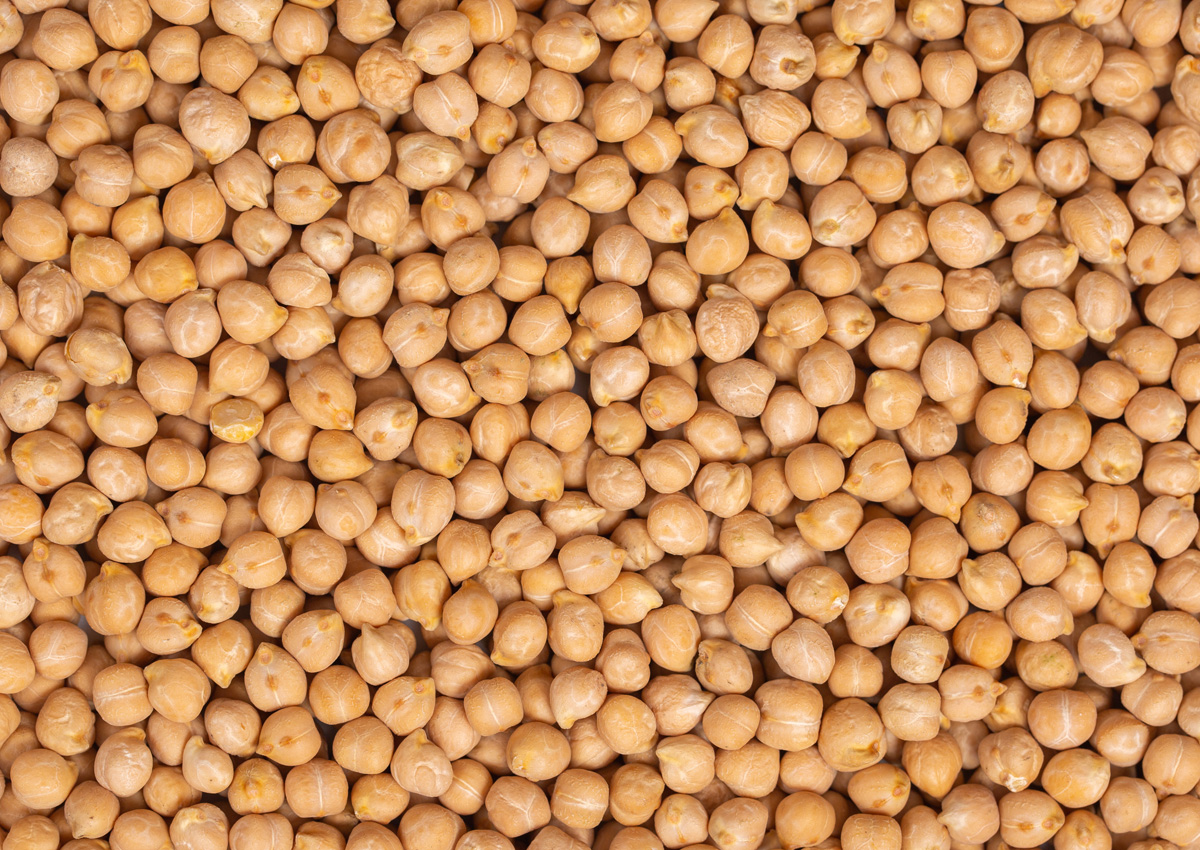
ICRISAT Leads Largest Plant Genome Sequencing Effort, Yields Chickpea Pan-Genome
November 17, 2021| |
An international team of researchers from 41 organizations led by the International Crops Research Institute for the Semi-Arid Tropics (ICRISAT) has assembled the chickpea pan-genome in the largest sequencing effort for any plant.
The team assembled the pan-genome by sequencing the genomes of 3,366 chickpea lines from 60 countries, with 3,171 cultivated accessions and 195 wild accessions that are conserved in multiple genebanks. They also identified 29,870 genes that include 1,582 previously unreported novel genes. Chickpea is the world's third-most cultivated legume, and is indispensable to diets in many countries. The demand for chickpea is expected to increase in the coming years as the global population rises.
Cultivated chickpea is scientifically called Cicer arietinum, and the study reveals that C. arietinum diverged from its wild progenitor species, Cicer reticulatum, around 12,600 years ago. Chickpea history is associated with a strong genetic bottleneck beginning around 10,000 years ago. The population size reached its minimum around 1,000 years ago before seeing a strong expansion in the last 400 years, suggesting a renewed interest in chickpea agriculture across the world.
The researchers identified deleterious genes responsible for lowering crop performance through a comparison of the genetic variation in cultivated chickpea with that of its wild progenitor. The wild progenitors had more abundant deleterious genes. Researchers say that these deleterious genes can be further purged in cultivars using genomics-assisted breeding or gene editing.
For more details, read the new article in ICRISAT Happenings.
| |
You might also like:
- UWA and ICRISAT Researchers Identify Genes to Improve Chickpea's Phosphorous Uptake and Use Efficiency
- Chickpea to Get Nutrition Boost from Hardy and Weedy Wild Relatives
- Global Team Sequences 429 Chickpea Lines from 45 Countries to Develop High-Yielding, Climate Resilient Crop
Biotech Updates is a weekly newsletter of ISAAA, a not-for-profit organization. It is distributed for free to over 22,000 subscribers worldwide to inform them about the key developments in biosciences, especially in biotechnology. Your support will help us in our mission to feed the world with knowledge. You can help by donating as little as $10.
-
See more articles:
-
News from Around the World
- Researchers Identify Broccoli Genes for Freshness
- Study Shines Light into "Black Holes" in Arabidopsis Genome
- Banning GMOs Deprive Farmers and Consumers Economic and Health Benefits, Report
- Brazil Approves Drought Tolerant HB4® Wheat
- ICRISAT Leads Largest Plant Genome Sequencing Effort, Yields Chickpea Pan-Genome
- Experts to Tackle Biotechnology for Green Recovery
- Nepal Reopens Doors to GM Soybean Meal Imports
- Asian Short Course on Agri-biotech, Biosafety Regulation, and Communication (ASCA2021)
- Food Futures: Commercialization of Gene Edited Crops in Asia and Australia
-
Research Highlights
- Scientists Uncover Breeding Gold Mine Discoveries for Wheat Genetic Improvement
-
Plant
- Experts Develop Gene-edited Barley with Prolonged Grain Dormancy
- Sweeter Tomatoes Developed Through Gene Editing
-
Read the latest: - Biotech Updates (February 11, 2026)
- Gene Editing Supplement (January 28, 2026)
- Gene Drive Supplement (February 22, 2023)
-
Subscribe to BU: - Share
- Tweet

